How to eat before a triathlon?

- 1. Understanding the Importance of Nutrition for a Triathlon
- 2. Deciding What to Eat Before a Triathlon
- 3. Ideal Timing for Pre-Race Meals
- 4. Creating a Hydration Strategy
- 5. Tips for Proper Digestion Before a Triathlon
- 6. Case Studies: Successful Pre-Triathlon Eating Routines
- 7. Mistakes to Avoid When Eating Before a Triathlon
- 8. Frequently Asked Questions about Pre-Triathlon Nutrition
- 9. Developing Your Own Pre-Triathlon Eating Plan
- - Simple Steps to Design a Personalized Diet Plan
- - Adjusting Your Plan Based on Training and Performance Feedback
- 10. Conclusion: Powering Your Performance Through Nutrition
1. Understanding the Importance of Nutrition for a Triathlon
In the world of sports, nothing demands as much preparation as a triathlon, a race of endurance testing your body's capacity on land and water. One aspect often underrated in this comprehensive preparation - Nutrition. A balanced, strategic nutrition plan plays an indispensable role in powering a triathlete's performance. Why so? Picture your body as a sports car, it's not going to perform to its full potential unless you load it with the right kind of fuel. The similar principle applies while prepping for a triathlon, nutrition fuels your vitality, which, in turn, impacts your speed, endurance, and recovery. This makes understanding and mastering your nutritional needs and timing vital to cross the finishing line triumphantly.
- How Nutrition Fuels your Performance
The role of nutrition in fueling your performance as a triathlete cannot be overstated. Your body, similar to an intricate machine, requires high-quality fuel to function efficiently and at its peak. By consuming a balanced and diverse diet, you provide your body with the necessary macronutrients - carbohydrates, proteins, and fats – all of which play a crucial role in energy production. Carbohydrates, specifically, are your body's preferred source of energy for high-intensity activities like triathlons. Simultaneously, ample intake of protein aids in muscle recovery and building, giving you the strength and endurance to power through the race. The role of fats should not be undermined either, as they provide a steady source of energy for longer durations. Moreover, micronutrients - vitamins and minerals - while needed in smaller quantities, enhance bodily functions and boost immunity. Therefore, the right nutrition equips you with the needed stamina, speeds up recovery, supports muscle growth, and ultimately fuels your performance. Simply put, understanding and investing in the right nutrition could very well be your secret weapon to outperforming in a triathlon!
- Risks of Poor Nutrition
Not eating properly before a triathlon comes with its fair share of risks. A poor dietary regimen can drastically hamper your performance. When we create a caloric deficit by not consuming enough calories, our bodies enter into a state of conservation, ready to burn off stored fat. Sounds good, right? Not quite. Triathlons require intense physical effort and without the proper nourishment, your body can end up burning valuable muscle tissue instead of fat, negatively affecting both performance and recovery. Furthermore, you could be susceptible to dehydration and electrolyte imbalances resulting from improper nutrition. These factors could lead to extreme fatigue, dizziness, fluctuations in heart rate, even unconsciousness during the race. The bottom line? Your body's engine cannot run without fuel. Neglecting nutrition equates to going into a triathlon with a half-filled tank, which puts you at risk of 'bonking' or 'hitting the wall'. Feeding your body inadequately can make a huge difference in your race performance. Thus, smart and strategic eating should not be overlooked. But, what happens when we neglect this vital aspect of preparation? Let's explore the risks of poor nutrition.
2. Deciding What to Eat Before a Triathlon
In the pursuit of your highest performance in a triathlon, what you fuel your body with matters immensely. Ensuring a balance between macronutrients - protein, fats, and carbs, and micronutrients - vitamins and minerals, is critical to optimize energy and repair. Your pre-triathlon diet should be a celebration of variety and high-quality foods. Whole grains, lean proteins, healthy fats, and a rainbow of fruits and veggies should grace your plate. Each bringing its own essential nutrients to your table, these foods bulk up the nutrition density of your diet, giving your body the right kind of fuel to forge forward. Aim for nutrient-rich, less processed foods to power your performance. It's not just about eating, but eating right before a triathlon.
- Macro and Micro-Nutrient Needs
When preparing for a triathlon, understanding your body's **macro and micro-nutrient needs** is of paramount importance. A balanced diet goes beyond just counting calories; it involves proper intake of **proteins, carbohydrates, and fats** (macronutrients), along with requisite **vitamins and minerals** (micronutrients). These nutrients symbiotically work to fuel your body, aid muscle recovery, and optimize performance. Now, you may be wondering, what role do these nutrients play? Here's a brief rundown - **Proteins** are the body's building blocks, required for muscle growth and recovery. **Carbohydrates**, on the other hand, are the main source of energy. They fuel your muscles, allowing you to maintain intensity during the race. And no, fats aren't the enemy! They serve as a vital energy source, especially for endurance athletes. Equally important are the often-overlooked **micronutrients**. Iron, for instance, helps to transport oxygen to your muscles, while calcium and vitamin D support bone health. It's a no-brainer that lacking these essential nutrients can hamper your performance and overall health. So, remember triathletes, nutrition is not one-size-fits-all. Understand your body's needs, the vigorous training you're subjecting it to, and design your diet accordingly. Stand by for an in-depth look at food variety and quality in the upcoming section!
- Food Variety and Quality
When it comes to deciding what to eat before a Triathlon, Food Variety and Quality undoubtedly take the center stage. Experience shows each food group offers vital nutrients your body craves to stay in top shape. So, why choose? Incorporate a variety of foods into your pre-triathlon diet, ranging from whole grains to fruits, vegetables, lean proteins, and healthy fats. But remember, not all foods are created equal. Quality matters just as much, if not more! Opt for nutrient-dense choices over calorie-dense ones. Instead of reaching for processed foods with barely any nutritional value, fill your plate up with organic fruits, high-quality protein sources such as lean meats or legumes, and complex carbohydrates. Don't forget to top it off with a healthy dab of fats from sources like nuts and avocados. What you feed your body ultimately fuels your performance. So, give it the premium, high-quality fuel it deserves. After all, your pre-triathlon diet isn't just about eating—it's about nourishing your body for the ultimate test of endurance. And who wouldn’t want to cross that finish line seeing the fruits of their nutritional labor? Remember, your race starts with what's on your plate. So why not make every bite count?
3. Ideal Timing for Pre-Race Meals
Mastering the ideal timing for pre-race meals is one aspect of a triathlete's nutrition that can make a heck of a difference on race day. Ever had that awful, cramping feeling midway through a race? Chances are, you ate too close to the starting line. Timing matters as your body needs sufficient time to effectively digest the food and absorb essential nutrients for your performance. It's a tricky dance of consuming your meal early enough to avoid digestive issues but late enough to ensure you're fueled up. Remember, every triathlete is unique; understanding your personal digestion timeline takes a bit of science and a touch of experimentation! Get started and ace your next race.
- The Importance of Meal Timing
In the highly demanding sport of triathlon, every detail counts. One dimension that often gets overlooked yet holds significant importance is meal timing. Acquiring the right nutrients is vital, but equally as crucial is when you consume them. Strategically timed meals not only fuel your body for the extensive physical exertion of a triathlon but they also aid in a smooth digestion process, preventing any gastrointestinal discomfort during the race. Feeding your body in relation to both the intensity and duration of your training sessions can help optimize your performance. Carb-loading, for example, is a common practice typically initiated a few days before the race. High-glycemic foods are intentionally consumed to saturate the body’s storage of glycogen, providing you with readily available energy. However, eating copious amounts of carbs just minutes before the race can lead to cramps and bloating. Additionally, consuming protein-rich foods shortly after intense exercise supports muscle recovery and growth. This implies, a well-planned eating schedule significantly influences not only your triathlon performance but also your training effectiveness. In a nutshell, timing matters; your pre-race meal shouldn't be left to chance or convenience. Rather, it should form an integral part of your triathlon success strategy!
- Calculating Your Personal Pre-Race Eating Schedule
Perfecting your pre-race eating schedule demands an understanding of your body's energy requirement and digestion rhythm to optimize performance. Just as each triathlete's physique and stamina vary, so does the ideal timing for ingesting pre-race nutrition. Firstly, consider the time required for digestion. Foods rich in complex carbohydrates, lean proteins, and healthy fats deliver sustained energy but may require 2 to 4 hours to fully digest. It's crucial to ensure your body has ample time to transform these nutrients into fuel without causing gastric discomfort mid-race. Secondly, observe your training periods. Take note of when you typically experience energy spikes and slumps during your training, as this correlation can influence your eating plan. Thirdly, it's pivotal to structure your pre-race meals around the race schedule. For early morning races, a lighter meal or energy-boosting snack may often suffice, complemented by hydrating liquids. Finally, recording observations and adjusting your meal strategy over time will fine-tune your personal pre-race eating schedule. In the intriguing realm of triathlon nutrition, your body is your most accurate guide. So remember, knowing your body well, testing, and tweaking your plan based on training feedback is key to defining your perfect pre-race eating schedule.
4. Creating a Hydration Strategy
Hydration plays a pivotal role in gearing up for a triathlon - think of it as the oil that keeps your physical engine running smoothly. Dehydration can lead to fatigue, impaired performance, and even severe health risks. To prevent this, it's essential to establish a well-balanced hydration plan. This doesn't mean guzzling gallons of water right before the race; it's all about regular, consistent hydration leading up to the event. Consider beverages that provide electrolytes for added benefits. Also, keep in mind that everyone's hydration needs vary based on factors like body weight and metabolic rate. Stay tuned as we delve deeper into the key aspects of pre-triathlon hydration.
- Body's Hydration Requirements
Hydrating your body before a triathlon is absolutely crucial in maintaining strength, endurance, and focus throughout the race. Understanding your body's hydration requirements will not only help you perform optimally but also prevent any potential health risks. Dehydration can significantly impact your performance, causing fatigue, loss of coordination, and even heat stroke in severe cases. As a rule of thumb, you need to consume at least half of your body weight (in ounces) of water daily. However, during intense training periods and on race day, your fluid intake should increase due to the excessive sweating and energy expenditure. Additionally, it's worth noting that staying hydrated is not only about drinking water. Your body also needs essential electrolytes, like sodium and potassium, which are lost through sweat. These play critical roles in muscle function and maintaining balance of fluids in your body. Therefore, incorporating an electrolyte-rich sports drink in your hydration strategy could be beneficial. Remember, adequate hydration is more of a journey than a destination - start hydrating days before your race, and not just hours. This strategic approach towards hydration will ensure that your focus stays steadily on the finish line, not on fighting off fatigue.
- Guidance on Pre-Triathlon Hydration
Hydration is a non-negotiable aspect of pre-triathlon training; it means more than just downing glasses of water each day. A comprehensive and strategic hydration plan should be in place weeks or, at the least, several days before the race. Keeping the body well-hydrated aids in maintaining balance in body temperature, lubricating the joints, and facilitating digestion - a triad that significantly impacts an athlete's performance. It's essential to understand your body's individual hydration needs. This generally depends on factors such as your weight, sweat rate, and weather conditions. For a rough estimation, the standard guideline suggests an intake of about 500 - 750 ml of fluids, one to two hours before a high-intensity workout like a triathlon. Beverages containing electrolytes are a superb choice – they help replenish the essential minerals lost through sweat. Remember, overhydration can be just as detrimental as dehydration. It can lead to hyponatremia, a condition caused by abnormally low sodium levels in your body. So, it’s vital to strike a balance. Build your hydration routine in line with your training schedule and your body’s feedback. Remember, good hydration is not a one-size-fits-all; what works best for you is a crucial piece of your triathlon success puzzle.
5. Tips for Proper Digestion Before a Triathlon
To ensure a successful triathlon, prioritizing proper digestion beforehand is pivotal. Nutrition isn't just about what you eat—it's also how your body processes it! Implementing simple habits like eating fully cooked food can reduce the strain on your gut, facilitating efficient nutrient absorption. It's advised to steer clear of foods that may cause bloating, like beans, broccoli or carbonated drinks. Smaller, frequent meals are friendlier to your stomach than a large feast. Lastly, try reducing your intake of complex carbohydrates and fibers a day before the event—they take longer to digest, leaving you feeling lighter and more energetic on race day.
- Foods to Avoid
When preparing for a triathlon, a well-balanced and nutrient-dense diet is critical for maintaining energy levels and peak performance. However, you also need to be aware of certain foods you should avoid leading up to the event. Foods high in refined sugars, like pastries or candies, might give you a quick energy boost, but they are not sustainable. They can lead to a rapid drop in energy and affect performance. Similarly, stay away from high-fat foods, including certain cuts of meat, fried foods, and full-fat dairy that can slow down your digestion and make you feel lethargic. Spicy and gas-producing foods such as beans, lentils, broccoli, and the like, might cause gastrointestinal discomfort during the race. Equally, it's not uncommon for triathletes to limit their consumption of fiber a day or so before the event, as it can cause an upset stomach. It's essential to gauge your body's reaction to certain foods and create a personalized pre-race diet plan that helps fuel your body without any negative consequences. Remember, your goal is to nourish your body for optimal strength and endurance, so prioritize quality over quantity. Discover what works for you and make those choices part of your pre-triathlon routine.Foods to avoid could be the difference between a successful race and one beset with avoidable challenges.
- Eating Techniques for Better Digestion
Practicing good eating techniques can greatly enhance digestion, providing you with the necessary fuel to tackle the demanding exploits of a triathlon. Chewing your food thoroughly is an often overlooked yet vital step. The process of mastication not only breaks down the food into easier-to-digest pieces, but it also signals the body to release digestive enzymes, which aid in nutrient absorption. Avoiding large meals close to race time is another critical practice. Consuming smaller portions spread across the day can lead to more efficient digestion and less discomfort during the race. Also, practice mindful eating - slow down, appreciate your food and listen to your body's hunger and fullness cues. This can aid digestion and prevent overeating, a common problem among athletes. Finally, go easy on fiber-rich foods and caffeine right before the race as these can upset the stomach. But don't eliminate them completely as they each have their own important roles in a balanced diet. Remember, an optimal diet is as crucial to your triathlon success as your physical training. Thus, finding digestion-friendly eating techniques that work for you will ensure you are fueled and focused on race day.
6. Case Studies: Successful Pre-Triathlon Eating Routines
Diving into the world of successful triathletes, one quickly realizes the critical role that their eating routines play in fuelling their performance. Renowned triathlete, Sarah True, shares her regimented diet that starts the night before with a carb-rich meal. This accounts perfectly for her body's need for sustained energy and peak functionality during the prolonged physical exertion. More surprisingly, a mid-ranking yet passionately dedicated triathlete, Mike Vine, swears by a breakfast of quinoa porridge laced with blueberries, an hour before the race! These diverse culinary tactics showcase in the world of triathlon, nutrition strategies are as personal as they are crucial, giving ample food for thought.
- Interviews with Successful Triathletes
In a bid to gather refreshing insights and savvy tips, we reached out to a handful of accomplished triathletes. Their wealth of experience has driven them through diverse pre-race meals and nutrition plans, which have significantly influenced their performance. Mark, a seasoned triathlete, emphasized the importance of a high-carbohydrate diet in the week leading to a race, rather than overloading on the race day. Besides, Sarah, a triathlon champion, shared her unique pre-race practice of consuming easily digestible foods. She recommends meals that are rich in lean protein and complex fiber, preferably, three hours before the race. Meanwhile, professional triathlete and nutrition enthusiast, Paul, insisted on the crucial role of hydration. "I make sure I hydriciaize fully starting from 48 hours before the race, drinking more water and cutting on caffeine," he shared. Each of these athletes' insights underscores the significant role nutrition plays in gear up for a triathlon; although it's also clear that an 'ideal' pre-race nutrition strategy may vary by athlete. The recurring lesson here is to note the importance of tailoring a nutrition plan that aligns with your body's unique needs and how it reacts to different foods and nutrients.
- Analyzing Diverse Nutritional Strategies
In our exploration into the diverse nutritional strategies of various successful triathletes, we delve into a fascinating realm of varied, yet converging approaches. A common thread running through all these personal diets was the focus on optimising intake of carbohydrates and proteins. For instance, Ironman champion Jane Doe aimed for a particular ratio of these macronutrients, largely consumed through natural whole foods. She brilliantly illustrated how 'personalization' was the key to her nutritional strategy. Contrary to Jane's approach, another triathlete, John Doe, followed a plant-based diet. His meals, rich in fruits, vegetables, whole grains, and legumes, were intrinsically high in complex carbs, providing him with sustained energy. He fascinatingly illustrated how this cruelty-free nutritional approach powered his exceptional performances. A third, yet equally effective approach was adopted by triathlete Sam, a follower of intermittent fasting. Sam's nutritional strategy revolved around the principle of cycling between periods of eating and fasting, which he claimed improved his body’s capacity to utilize fat as fuel. Each of these strategies, while differing in their specifics, shared an underlying theme – understanding their body, its needs, response to different nutrients and customizing their nutrition along these lines. One size does not fit all when it comes to triathlon nutrition, and these examples provide compelling evidence of precisely that.
7. Mistakes to Avoid When Eating Before a Triathlon
Training for a triathlon is no small feat. Proper nutrition is vital for endurance performance, but it's often an area where many triathletes falter. One common mistake is neglecting hydration. Dehydration can hinder your performance and potentially lead to health issues. Another blunder is overeating. Consuming too much food close to race time can result in cramping and discomfort. Remember, your body requires time to digest food effectively, so don’t cram in a massive meal at the eleventh hour. Lastly, remember that all foods aren't your friends. Rich, fatty foods or foods that can cause gas and bloating should be avoided. Be wise with what you eat. Your performance swings on it.
- Common Nutrition Mistakes
When it comes to preparing for a triathlon, many individuals unfortunately commit crucial common nutrition mistakes that can seriously hamper their performance. One of the most frequent missteps is neglecting the importance of carbohydrates in their diet. Due to trendy low-carb diets, many athletes underestimate the critical role of carbohydrates as fuel during endurance events. In fact, depleting your carbohydrate stores can lead to a decline in speed, stamina, and overall performance. Another widespread mistake is athletes failing to consume sufficient protein. Protein is fundamental for muscle repair and recovery. Therefore, inadequate protein can lead to over-fatigue, longer recovery periods, and ultimately, a drop in performance. Failing to hydrate properly is a further common error. Dehydration during the event can lead to cramping, fatigue, and even more severe health issues. Lastly, many triathletes make the mistake of trying new foods or supplements on race day. This risky approach can lead to unexpected digestive issues, impacting not only performance but overall race experience. To maximize your performance potential, it's vital to stick to tried-and-true nutrition habits. By avoiding these common nutrition mistakes, you can ensure you're well-equipped for your next triathlon event. Practice makes perfect - your nutrition plan should be no different!
- Lessons Learned from Professional Triathletes
Professional triathletes are the epitome of grit and discipline, providing invaluable insights into the realm of pre-triathlon eating routines. Blacklisting certain foods from their menu is an often-resorted strategy. Excessively spicy or greasy dishes, alcohol, and untested sports supplements often make up this list. They are known to irritate the digestive system and cause discomfort during the race. Moreover, they are strong advocates for practicing their race-day nutrition during training sessions. This ensures their bodies can efficiently process and gain energy from the foods consumed. Dodging last minute dietary experiments is another lesson to pick up. Instead of risking adverse reactions on the race day, sticking with tried-and-tested meals is highly recommended. Lastly, the practice of carbohydrate loading usually 3-4 days before the event is another tried-and-tested strategy. However, overdoing it could lead to gastrointestinal issues, highlighting the importance of a balance. The take-away? Balance and familiarity are the name of the game when it comes to pre-triathlon nutrition. Regular practice, avoiding certain foods, and judicious carbohydrate loading are influential pointers we can garner from seasoned triathletes in our endeavour towards a healthier and productive triathlon preparation.
8. Frequently Asked Questions about Pre-Triathlon Nutrition
In this section of our guide, we're going to delve deep into the most commonly asked questions regarding pre-triathlon nutrition. It's perfectly normal to have queries—the importance of nutrition shouldn’t be underestimated! "Should I carb-load before the race?" Well, to answer this, complex carbs are indeed vital for energy, but it's crucial not to overload. Overeating can leave you feeling sluggish. "What about hydration?" Timing matters here. Ensure consistent hydration in the week leading up to the race, not just on the day. Remember, questions are beneficial—they pave the path towards a robust, performance-boosting pre-triathlon eating plan.
- Common Queries About Pre-Race Eating
Triathlon athletes often have Common Queries About Pre-Race Eating. Wondering what to eat, when to eat, and how much to consume are common dilemmas every triathlete faces during training. They want to maximize energy levels but avoid feeling weighed down. High carbohydrate foods like pasta, rice, and potatoes are often recommended for pre-race nutrition. However, it's not a one-size-fits-all approach. Individual dietary requirements and digestive comfort should be strongly considered. What works for one athlete may not work for another because everyone is biologically unique. Pondering over the optimal timing of the pre-race meal is another usual concern. Eating 2-4 hours before the race allows ample time for digestion and absorption of the nutrients. But again, what could be the magic hour for one might lead to a gastric catastrophe for another. Therefore, it's crucial to test different strategies during training to figure out what works best for you. Lastly, triathletes often ask about hydration. Is it just about drinking plenty of water? Well, no. It is about finding the right balance. Too little fluid can cause dehydration, too much might lead to hyponatremia, a condition caused by low sodium levels. Therefore, it's crucial to incorporate electrolytes in your hydration plan. Remember, personalized nutrition is key to optimal performance!
- Expert Answers
In the realm of pre-triathlon nutrition, numerous queries tend to surface, and it's essential to have expert answers at your disposal. Many athletes wonder if it's beneficial to increase protein intake before the race. As per nutritionists, a balanced combination of protein and carbohydrates is crucial, rather than solely focusing on protein. What about the infamous 'carb-loading'? Interestingly, this strategy proves advantageous, but it doesn't equate to consuming a large bowl of pasta the night before the race. You should integrate higher quantities of quality carbohydrates into your diet several days leading up to the event. That leads us to another often-asked question - "Should I try a new kind of food or drink on race day?" In short, this is generally a misguided approach. Sticking to foods you know suits your body will reduce unexpected surprises that could adversely affect your performance. Lastly, athletes often question if sports drinks and gels provide any advantage. A noteworthy point is that these items are designed to be easily digestible and quick sources of energy, which can certainly boost your performance during the triathlon. However, remember to test them during your training first to ensure they mesh well with your system.
9. Developing Your Own Pre-Triathlon Eating Plan
Embarking on your personalized pre-triathlon meal plan requires a blend of scientific knowledge and instinctive listening to your body. Firstly, understand your body's unique nutritional demands based on training intensity, duration, and personal health factors. Following this, chart out your macro and micronutrient requirements to align with these demands. Remember to maintain food diversity and quality to ensure well-rounded nutrition. Monitor how your body responds to varied foods and meal timings; refine your plan based on feedback. Be open to adjust the plan as your training progresses and changes. This journey is not just about fuelling performance, but also about enhancing your relationship with food and understanding your body better.
- Simple Steps to Design a Personalized Diet Plan
Designing a **personalized diet plan** for a triathlon is surprisingly simple, yet it calls for a thoughtful approach. The first step is to **understand your nutritional needs**: what fuels your body effectively and what doesn't? Equally, you have to consider the intensity and duration of your training or the race itself. Try to include a variety of foods to secure your macro and micronutrients. Secondly, **test your meals** during training runs. You don’t want to surprise your gut on race day. Also, don’t forget to factor in proper hydration, making sure you're drinking adequate fluids throughout the day. Start by **keeping a food diary**. It can help to identify patterns and adjust your plan according to how your body responses to certain food and drink. Lastly, **be flexible**. What might work for one season of training or one particular race might not work for another. Stay open to change, adapt your plan as needed, and you'll have a successful foundation for fueling your triathlon performance. After all, pre-triathlon nutrition is not just about eating right- it's about finding what works best for **you**. Remember, no size fits all when it comes to nutrition. So, pay attention to your body and adapt accordingly.
- Adjusting Your Plan Based on Training and Performance Feedback
Adjusting your eating plan according to your training regimen and performance feedback is paramount to accomplishing your triathlon goals. The key lies in monitoring your progress diligently and making nutritional tweaks as required. For instance, if you're consistently feeling drained during your workouts, it might be a sign that you're not consuming enough carbohydrates. Likewise, recurrent muscle soreness could indicate inadequate protein intake. Emphasize balanced, nutrient-rich meals that correspond with your training intensity. Don't be afraid to experiment with your diet; every triathlete’s body responds differently to different foods. It might be worthwhile to incorporate a wider variety of foods and examine how they affect your performance. Moreover, listen to your body. If a certain food item causes discomfort or lowers your energy levels, consider eliminating it from your diet. Fine-tuning your pre-triathlon eating plan doesn't happen overnight. It's an ongoing process requiring patience and commitment. Remember, what matters the most is fueling your body with the right nutrients at the right time, optimizing your performance, and reducing the risk of injury. Get feedback, adjust accordingly, repeat - that's the mantra! All else is secondary. Note that, your pre-triathlon nutrition plan is the foundation for your overall performance. Empower it!
10. Conclusion: Powering Your Performance Through Nutrition
In concluding, mastering your pre-triathlon nutrition is absolutely vital towards powering your performance. Whether newbie or seasoned veteran, understanding how nutrition impacts your body is the difference between a successful race and potential disappointment. Remember, food is fuel. What, when, and how you eat before a race significantly influences your endurance, speed, strength, and recovery. Be mindful of your hydration, focus on proper digestion, and learn from the successes and failures of others. Most importantly, your eating plan should be uniquely catered to your needs and continually adjusted based on feedback. So, are you ready to supercharge your performance through the power of nutrition? Don’t just train hard, eat smart!
- Key Takeaways from the Article
In wrapping up our thoroughly discussed points on pre-triathlon nutrition, it is vital to emphasize that the food you eat is your fuel. Your performance is directly linked to your nutrition strategy. Understanding how to manage your macro and micro-nutrient intake is central to performing at your best. A diverse, high-quality diet paired with the correct meal timing can significantly boost your endurance and speed. Hydration is equally crucial, and cannot be overstated. Your hydration strategy should align with your body's needs, factoring in weather conditions and personal sweating rate. On the other hand, careful digestion is paramount to prevent gut problems that can hamper your race. Avoiding certain foods and practicing thoughtful eating techniques can enhance your digestive health. Remember to analyze the experiences of successful triathletes to avoid common nutritional pitfalls. Common mistakes vary from undervalued hydration to neglecting specific nutrient needs. Learning from these lessons offers you a roadmap to better nutrition. Ultimately, it's about personalization. Develop an eating plan that fits your unique needs, adjusting as necessary. Triathlon nutrition is more than just a pre-race routine, it's a lifestyle. Take these key takeaways and use them to power your performance through nutrition.
- Final Thoughts on Nutrition for Triathletes
As a triathlete, the way you fuel your body can often make the difference between standing on the podium and watching from the sidelines. It's not just about providing the resources your body needs to perform optimally, but also about training your body to utilize these resources efficiently. Nutrition isn't a one-size-fits-all approach, it requires customization based on individual needs, goals, and physiology. Effectively, nutrition translates into energy - the more efficient your diet, the more energy you can harness, and the better your performance. But remember, this is not about the pursuit of a temporary 'high' or speedy recovery; it's about long-term, sustainable athletic performance. Always prioritize quality over quantity, and listen to what your body tells you - it's often the best guide. It may seem overwhelming at first, but with the right guidance, developing a comprehensive pre-triathlon eating plan can be incredibly empowering. Take the time to understand your body, your sport, and the role that nutrition plays in tying the two together. Because in the end, it's not just about crossing the finish line; it's about how well you cross it!
In conclusion, nutrition is a fundamental cornerstone in preparing for a triathlon. It is essential to understand your macro and micro-nutrient needs, time your meals correctly, stay properly hydrated and ensure good digestion. Avoid common mistakes and learn from professionals to craft a personalized pre-triathlon diet. With careful planning and consideration, you'll fuel your body for peak performance, ensuring you're on the right track to achieving your triathlon goals. Remember, your diet is as much a part of your training as swimming, cycling, and running.
What should I eat the night before a triathlon?
A balanced meal consisting of lean proteins, whole grains, and vegetables should be consumed. Avoid high-fiber and fatty foods that can upset digestion.
How much water should I drink before the race?
Avoid overhydration. Consume small, frequent sips 2-3 hours before. Have at least 500-600ml of water 2-3 hours before the event.
Is it okay to consume energy drinks before a triathlon?
Yes, they provide an immediate boost, but should not replace a proper pre-race meal. Consume them 30 minutes before the race.
Should caffeine be included in the pre-race diet?
Caffeine can improve performance. 1-2 small cups of coffee before the race can provide a beneficial energy boost.
What are the most common nutritional mistakes made by triathletes?
Overeating and under-hydrating are common nutritional mistakes. Trying new foods right before the race can lead to digestion issues.


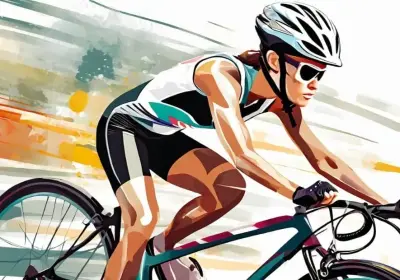
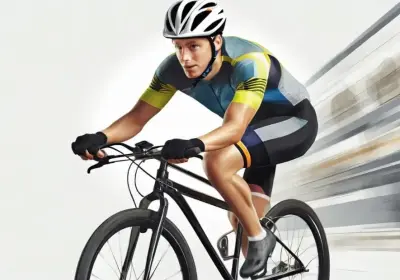

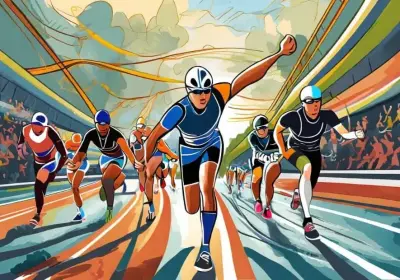
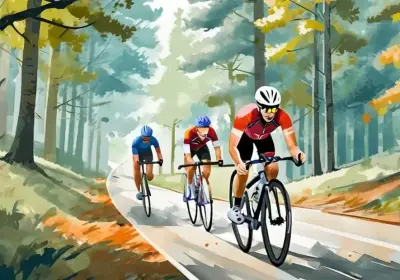
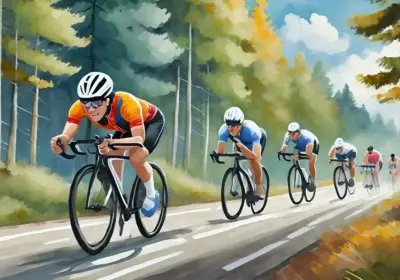


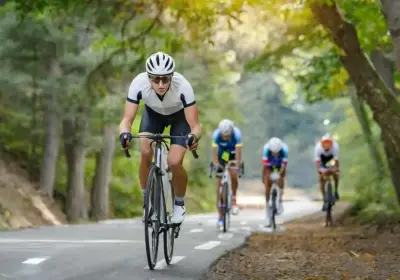

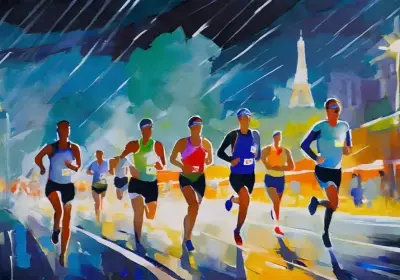
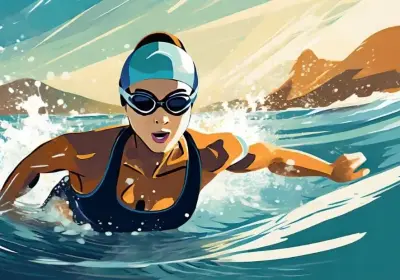
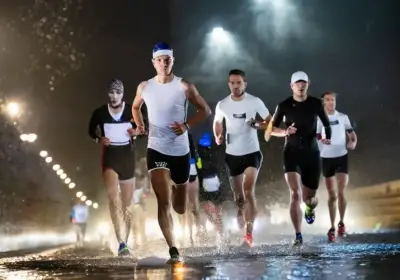
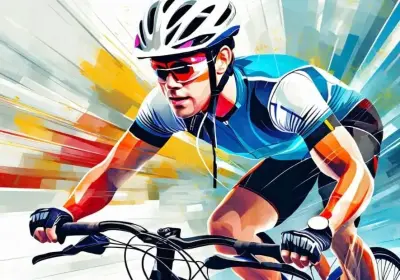
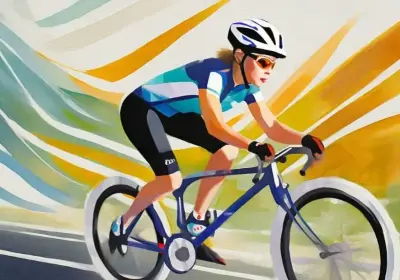
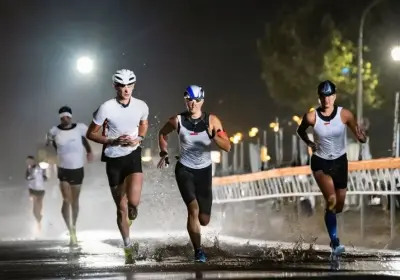

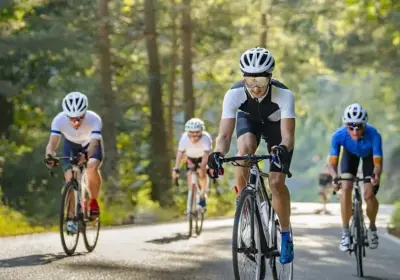
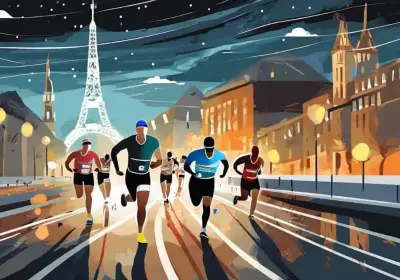
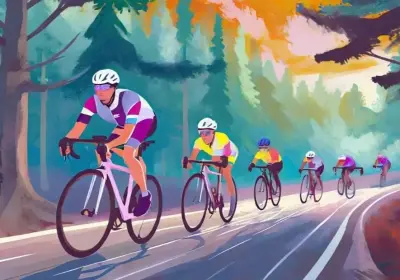
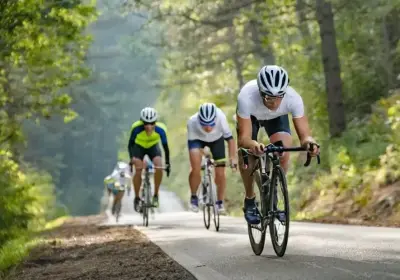

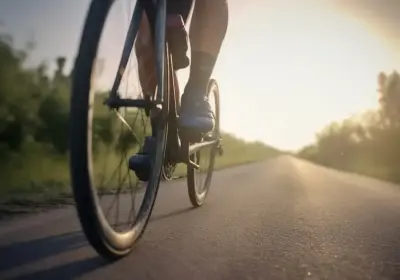
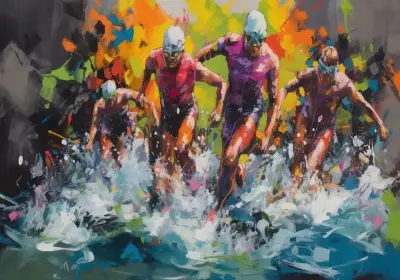
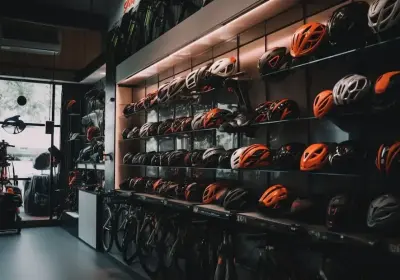
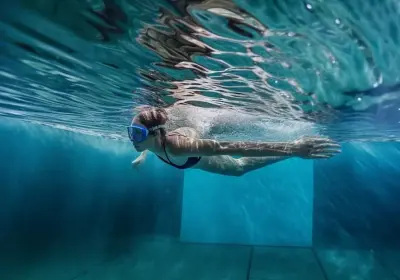
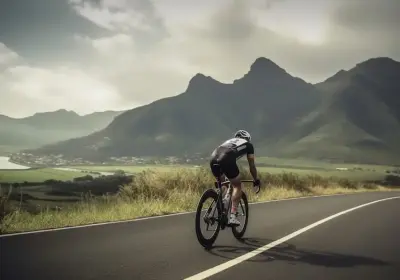
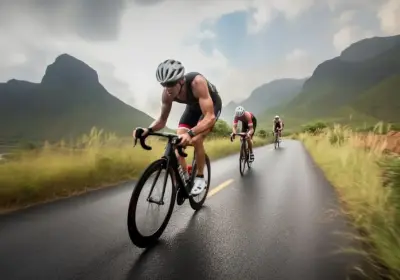
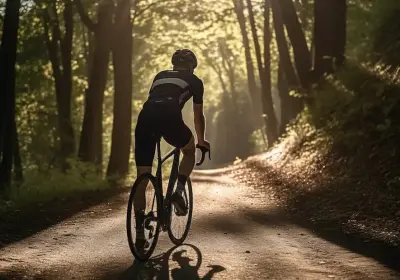







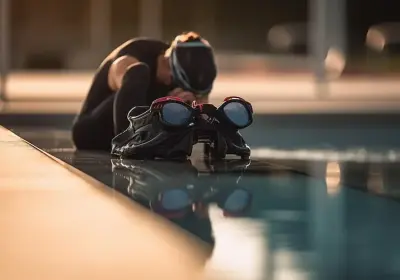
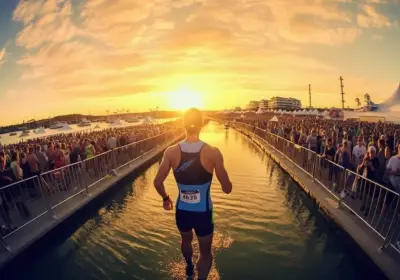

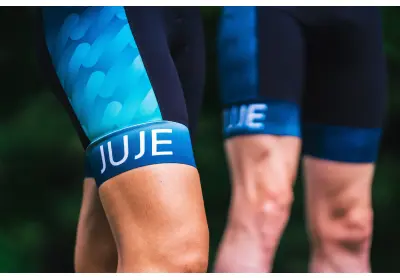
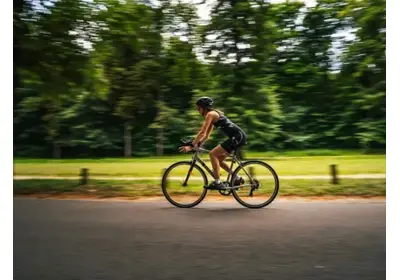
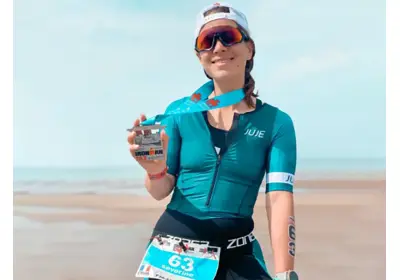




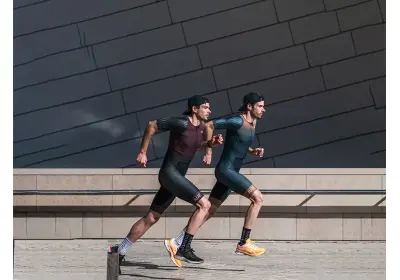

Leave a comment